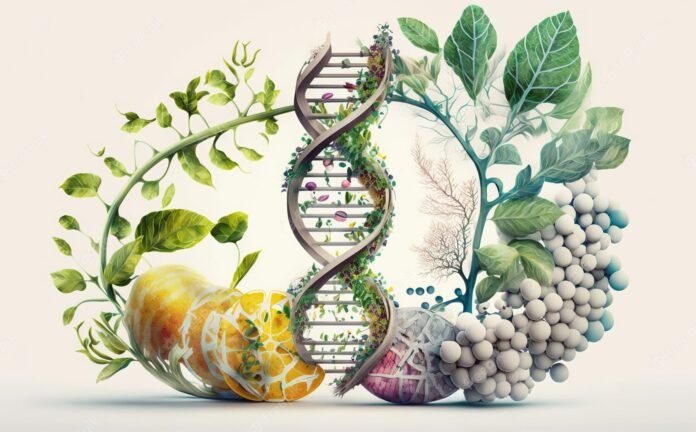In the world of academics, few subjects are as fundamental and fascinating as biology. If you’re embarking on a journey through the biological sciences, BIOL1S01 is likely to be one of the foundational courses you’ll encounter. This blog provides an in-depth look at BIOL1S01, exploring what it entails, why it’s essential, and how to make the most of your experience.
What is BIOL1S01?
BIOL1S01 is typically an introductory biology course offered at many universities and colleges. The course is designed to provide students with a broad understanding of the fundamental concepts in biology, laying the groundwork for more advanced studies in the field. It is often a prerequisite for more specialized biology courses and is essential for students pursuing degrees in biology, environmental science, medicine, and related fields.
Course Objectives
The primary objectives of BIOL1S01 include:
- Understanding Biological Principles: Students will gain a thorough understanding of key biological concepts such as cell structure and function, genetics, evolution, and ecological systems.
- Developing Laboratory Skills: The course often includes a laboratory component where students learn essential techniques and methods used in biological research.
- Applying Scientific Methods: BIOL1S01 emphasizes the application of scientific methods to investigate biological questions and solve problems.
- Enhancing Critical Thinking: The course encourages students to analyze and interpret scientific data, fostering critical thinking skills.
Key Topics Covered in BIOL1S01
BIOL1S01 covers a range of topics essential for a foundational understanding of biology. Here’s a brief overview of some key areas typically explored in this course:
1. Cell Biology
Understanding the cell is fundamental to biology. BIOL1S01 introduces students to:
- Cell Structure and Function: Students learn about the different organelles within a cell and their functions.
- Cell Membrane Dynamics: The course covers how cells interact with their environment through mechanisms like diffusion and osmosis.
- Cell Division: Key processes such as mitosis and meiosis are examined to understand how cells reproduce and maintain genetic integrity.
2. Genetics
Genetics is a crucial area of biology that explores heredity and variation:
- DNA Structure and Function: Students learn about the structure of DNA and its role in genetic information transmission.
- Genetic Inheritance: The principles of Mendelian genetics, including dominant and recessive traits, are discussed.
- Genetic Technologies: The course may cover modern genetic techniques such as CRISPR and gene therapy.
3. Evolution
Evolution is a unifying theme in biology that explains the diversity of life:
- Theory of Evolution: BIOL1S01 covers the foundational concepts of evolutionary theory, including natural selection and adaptation.
- Speciation: Students learn how new species arise and the mechanisms driving evolutionary change.
- Phylogenetics: The course introduces methods for understanding the evolutionary relationships among different organisms.
4. Ecology
Ecology examines how organisms interact with their environment:
- Ecosystem Dynamics: Students explore how energy flows through ecosystems and how nutrients are cycled.
- Population Biology: The course covers population growth models, species interactions, and conservation issues.
- Biomes and Habitats: Students learn about different biomes and the unique characteristics of each habitat.
The Importance of BIOL1S01
1. Foundation for Advanced Studies
BIOL1S01 provides the foundational knowledge necessary for more advanced biology courses. Understanding core concepts prepares students for specialized topics such as microbiology, biotechnology, and human physiology.
2. Essential for Careers in Science and Medicine
For students pursuing careers in science, medicine, or environmental fields, BIOL1S01 is critical. The course equips students with the knowledge and skills needed for research, clinical practice, and conservation efforts.
3. Enhances Scientific Literacy
Even for those not pursuing a career in biology, BIOL1S01 fosters scientific literacy. The course teaches students to think critically about scientific information and to understand the biological principles that underpin everyday life.
Tips for Success in BIOL1S01
1. Stay Organized
BIOL1S01 covers a broad range of topics, so staying organized is key. Keep track of assignments, lab reports, and exam dates to manage your workload effectively.
2. Engage with the Material
Active engagement with the course material enhances understanding. Participate in class discussions, ask questions, and seek clarification on complex topics.
3. Utilize Resources
Take advantage of available resources such as textbooks, online articles, and study guides. Many courses also provide supplementary materials and access to academic support services.
4. Practice Laboratory Techniques
If your BIOL1S01 course includes a laboratory component, practice the techniques and procedures regularly. Hands-on experience is crucial for mastering laboratory skills.
5. Form Study Groups
Collaborating with classmates can enhance learning and retention. Form study groups to discuss concepts, review material, and prepare for exams together.
The Future of Biology Education
The field of biology is constantly evolving with new discoveries and technologies. BIOL1S01 not only provides foundational knowledge but also introduces students to the exciting potential of future advancements. As scientific research progresses, new areas of biology will emerge, and understanding the basics will be essential for keeping up with these developments.
1. Integrative Approaches
Modern biology increasingly emphasizes interdisciplinary approaches, integrating concepts from fields such as chemistry, physics, and computer science. BIOL1S01 sets the stage for exploring these integrative approaches in future studies.
2. Emerging Technologies
Advancements in biotechnology, genomics, and bioinformatics are reshaping the field. Students who grasp the fundamentals in BIOL1S01 will be better prepared to engage with and contribute to these exciting developments.
Conclusion
BIOL1S01 is more than just an introductory course; it is a gateway to understanding the complexities of life and the biological processes that govern it. Whether you’re pursuing a career in science or simply looking to expand your knowledge, BIOL1S01 provides the essential foundation you need.
By embracing the core concepts of cell biology, genetics, evolution, and ecology, students can build a solid base for advanced studies and professional careers. For those embarking on this educational journey, BIOL1S01 offers an exciting opportunity to delve into the world of biology and discover the wonders of life itself.
